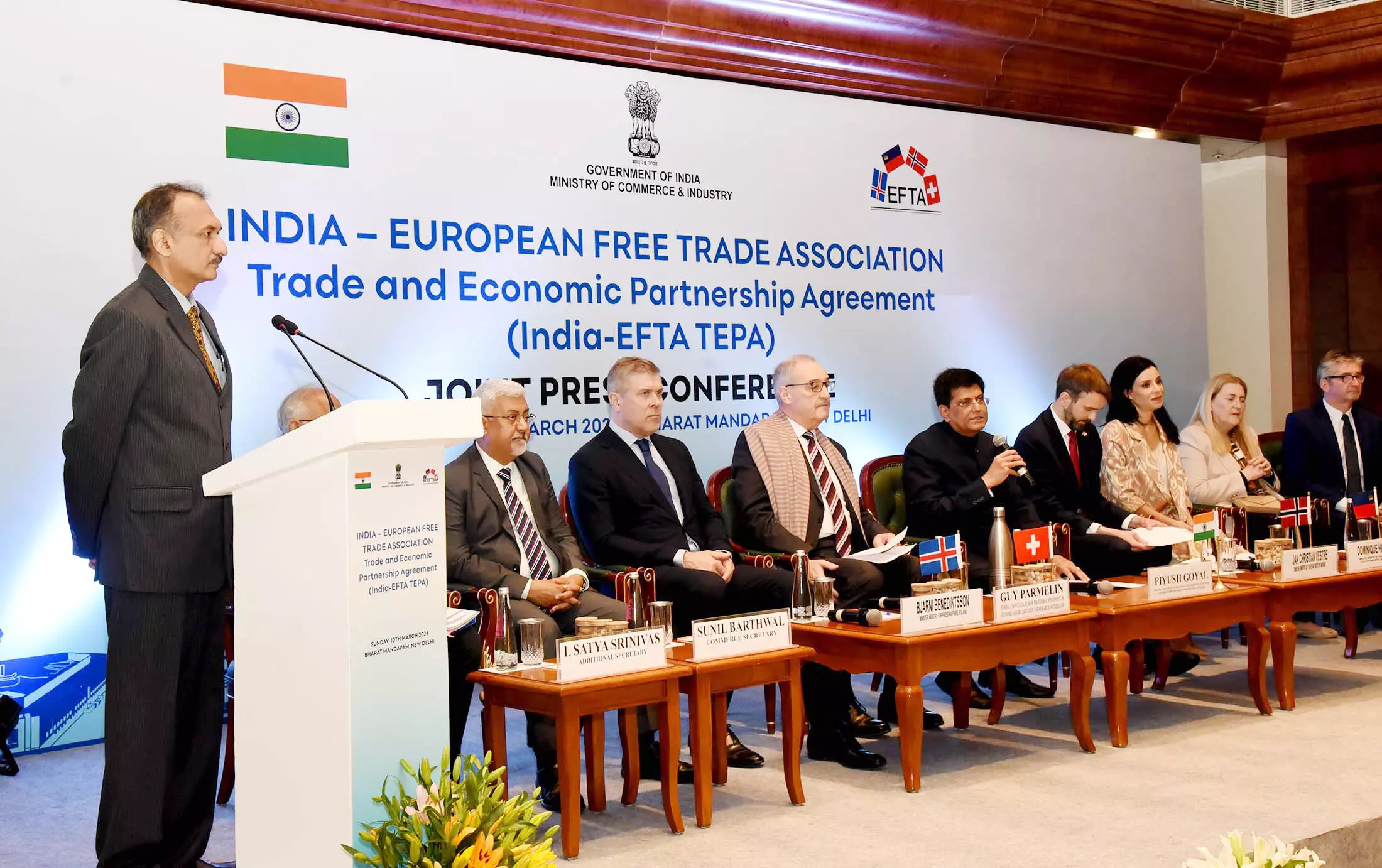India can withdraw duty concessions if $100 bn investment is not met by EFTA
The EFTA members are Iceland, Liechtenstein, Norway, and Switzerland
image for illustrative purpose

New Delhi: India will have the option of temporarily withdrawing customs duty concessions on EFTA country goods under the trade agreement between the two sides if the four European nation bloc would not fulfill its $100 billion investment obligations.
Though the investments have to flow in 15 years -- $50 billion in the first 10 years (counted after implementation of the pact) and another $5 billion in the next five years, the trade deal also provides for a three-year grace period to the EFTA bloc to meet the obligations, according to the documents accompanying the agreement.
India and the four-nation European Free Trade Association (EFTA) bloc signed the Trade and Economic Partnership Agreement (TEPA) on March 10 under which New Delhi received a foreign direct investment commitment of $100 billion in 15 years from the member countries of the grouping.
The EFTA members are Iceland, Liechtenstein, Norway, and Switzerland. There is a three-stage government-to-government consultation process prescribed in the document for the resolution of differences raised about the obligations.
"If, after the consultation period, India is still of the opinion that the EFTA states have not fulfilled their obligations, India may, after a further grace period of three years, suspend concessions. The suspension of concessions needs to be proportionate and temporary," according to the agreement documents posted on the EFTA website.
It would take a year for the agreement to come into force. The investment promotion and cooperation chapter of the agreement talks about a regular review by a specially appointed sub-committee, and it provides for a three-stage consultation procedure that can be invoked by India if the defined target has not been reached after 15 years.
An investment sub-committee would review progress towards the achievement of the shared objectives. The first review by the committee will be held no later than 5 years after entry into force of this agreement.
Similarly, the second review would take place after 10 years. The final review shall take place 15 years after entry into force of this agreement.
The document, however, stated that in case of the occurrence of any unforeseen circumstances like a global pandemic, war, geopolitical disruptions, financial crisis, or sustained economic underperformance, which have had a material bearing on the progress to achieve the shared objectives, the two sides will adjust the shared objectives accordingly.
To facilitate investments India will have to ensure a favourable investment climate while taking into account the need to identify, assess and mitigate potential risks for security or public order. As per the documents, all the duty cuts would be carried out over 10 years with different timelines for each category of goods by India for EFTA member countries.
The joint committee will be the apex body to supervise and administer the TEPA and oversee its further development.
India has received about $10 billion in foreign direct investments (FDI) from Switzerland between April 2000 and December 2023. It is the 12th largest investor in India.
The FDI inflow was $721.52 million from Norway, $29.26 million from Iceland and $105.22 million from Liechtenstein during the period.

